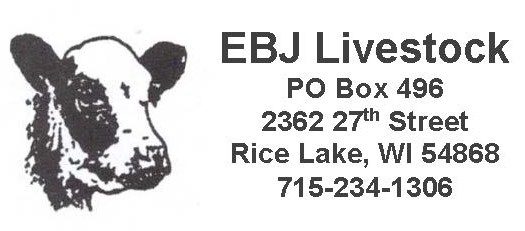We don’t have to look far for ridiculous statements. Election coverage is famous for it. Tabloids are also notorious for it. When I was growing up, I remember reading the headlines of a certain publication that printed untrue stories simply for the shock factor. I can remember reading the headlines and laughing:
- “Woman Gives Birth to a Pumpkin”
- “Man Abducted by Aliens Comes Back to Earth with Important Message”
- “Titanic Survivors Found Onboard!”
- “Chimp’s Head Put on Human Body (and is doing fine after transplant)”
- “(Political Figure Name) is a Robot!”
We see ridiculous statements attacking the agricultural industry as well. Wherever we look, there is an opportunity to see something ridiculous, something that shocks us. Headlines are intended to grab attention – it gives the reader an idea of what they might be reading and whether they want to spend their time on it or not. So if it shocks us, outrages us or brings information we need personally, it’s more likely to be read.
That’s why shocking people with outrageous political statements attracts readers.
The thing I’ve noticed about agricultural folks, though, is that not many are duped. They see through the bologna. They call a spade a spade. How many people do you know who would click on:
- “Cattle Breed That Obeys Owner! No Fences Needed!”
- “Cow Gives Birth to Ten Calves, One Only Has Two Legs, All Are Doing Well”
- “Breed Cows That Don’t Need Water! Cows Contain Mutant Camel Gene”
Maybe we’d click on them for a good laugh but, in honesty, we don’t want to be told nonsense. We are sensible people who like pursuing truth. When I see crazy headlines stealing space in grocery store checkout lines, it becomes apparent that some people believe things as truth. It begins to feel as if truth is subjective.
To some extent it is.
No one will argue that an apple is an apple. Or the sky is the sky. Or an airplane is an airplane. These are standard names needed in our culture to define things.
However, a group of people can sit through the same meeting and come away with very different experiences. “I felt that the speaker was speaking directly to me,” as opposed to “I didn’t get anything out of what that guy had to say.”
Neither one is false. It is just how one person experienced another in relation to their current personal status.
The same is true of siblings. They will have different types of memories for the same situation. It isn’t that either of them is “wrong,” it is their memory of the situation that’s shaped by their background and often their emotions.
Families often experience a disconnect with one another because of perceived truths. Last week, someone said to me, “It is really hard to move forward on the family ranch because my grandparents are still stuck on raising cows this way.”
These types of truth are experiential truths. It is the truth, from our perspective, of an event.
Sometimes, it is difficult to step out of what we experienced to try to understand what someone else experienced. However, maybe that’s what is needed to help us with family operations as well as growing the agricultural industry.
I tried doing this with fake meat. I must admit, I found it hard to step into the shoes of someone promoting the product. My mind kept arguing with what seemed “obvious” to me: “Fake meat is going to have fake byproducts,” I say to myself. “It’ll interfere with the cattle market. It probably doesn’t even taste good.”
Yet, in order to continue to promote our industry, we need to understand the perspective of the other side. Gulp!
Here’s what I’m hearing: Some people believe that raising animals is a very inhumane, toxic cycle. Thanks to erroneous headlines, inaccurate descriptions of cow gas now affect our food cycle.
I recently had a long conversation with someone who was highly interested in how we raise our cattle. She asked a lot of questions. “How do you move them?” “Do they have fresh food and water?” “Why do you raise cattle?”
I answered respectfully, assuring her we moved them at their own pace, giving them clean pastures and good water. We do this because we care about land management and quality of life for the animals we raise.
She breathed a sigh of relief before explaining that she had a family member who raised cows when she was growing up who beat them, screamed at them even when things were going well and kept them in filthy spaces. She had assumed this was how all ranchers operate.
Friends, our ranches and our practices are headlines to someone. If you have a high-exposure operation, thank you for keeping it clean and using great practices. It helps us stay away from those obnoxious, ridiculous headlines.
After all, we have enough crazy headlines already, don’t we? Thankfully, we still have great publications available.









